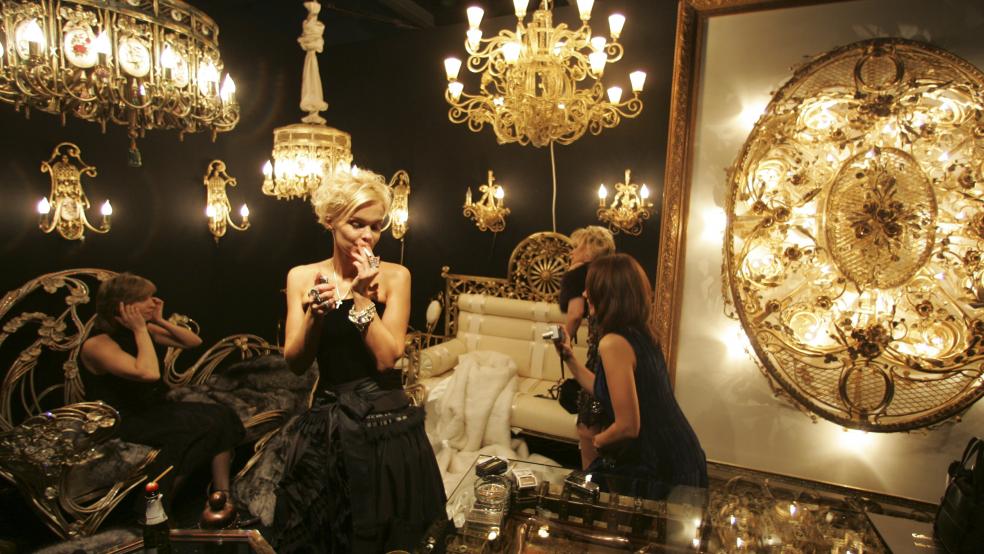Russian President Vladimir Putin is able to keep a stranglehold on power in his country because he has the backing of a group known of oligarchs, a small circle of wealthy businessmen who have become insanely rich in Putin’s Russia. Until today, no one knew just how small that circle is.
A report from Credit Suisse says that a mere 110 people control 35 percent of Russia’s household wealth. The country has one billionaire for every $11 billion in wealth. For comparison’s sake, in the rest of the world there is one billionaire for every $170 billion.
“Russia has the highest level of wealth inequality in the world, apart from small Caribbean nations with resident billionaires,” the Credit Suisse report said.
Since Russia has a total population of 143 million, the new finding means that less than .000001 percent of the population controls more than two-thirds of the country's wealth.
The report also noted that wealth in Russia has grown at a staggering rate over the last decade, but that wealth hasn’t been spread around. In 2000, there were only 8 billionaires in Russia.
CIRCLE OF WEALTH
The report is yet another sign of how Russia’s success over the last decade has been limited to an extraordinarily small number of people. It’s these people that keep Putin in power; as long as they’re rich, he’ll keep a firm grip on power.
RELATED: 8 WHO SQUARED OFF AGAINST PUTIN AND LOST
This kind of wealth inequality will be difficult to maintain over time, according to Credit Suisse. The vast majority of Russia’s wealth is in the country’s west, around Moscow and St. Petersburg. The rest of the country, which stretches over nine time zones, is years behind economically. It’s only a matter of time before the have-nots demand a piece of the country’s wealth.
“There were hopes that Russia would convert to a high skilled, high income economy with strong social protection programs inherited from Soviet Union days. This is almost a parody of what happened in practice," the report found.
It continued: “Efforts were made at the outset to distribute state assets equitably: Most of the housing stock was given away to residents and shares in Gazprom were allocated to Russian citizens. But other choice assets in resource-rich companies went to the chosen few, and subsequent developments in a nation notorious for weak institutions have reinforced the importance of political connections rather than entrepreneurial talent.”



